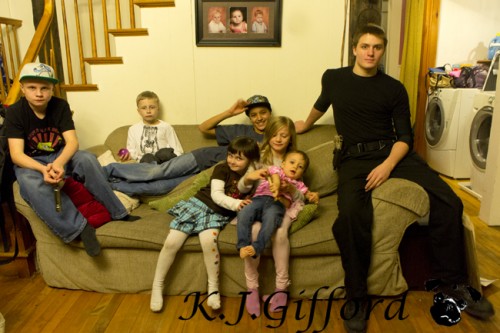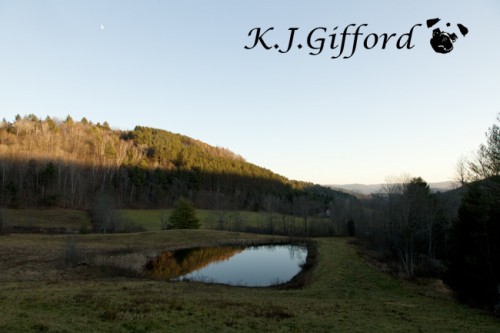A score of people huddle in the corner surrounding the wine and hors d'oeuvre table, mostly woman, mostly with their backs to me. Moments like this are one of the hardest parts of being single, at least for me anyway. I mourn the lack of having someone to walk into the room with, to occupy space between conversations, the air of legitimacy a partner gives. But I am alone, so I try to look busy checking my cellphone while I make my way toward the food.
I am here for the Celebration of the Life of Ceretha McKenzie, my student and friend, who died of cancer several weeks ago. I know no one, but Ceretha mentioned the names of many in her writing and conversations. I am looking for one woman in particular, the one that sought me out to tell me Ceretha had died. I have no way of telling her apart. Most of the people in the room are middle-aged, Ceretha's age, slender, earthy women who knew her from her dance class and some men, a few teen-aged boys, several couples. It's too difficult to get near the hors d'oeuvres, so I follow two young men to the empty, opposite corner of the room. Color looms there. Someone draped Ceretha's collection of scarves over the chairs, a rainbow snake of lights slinks across the floor. I later learn as people share that Ceretha had once brought a chain of similar lights to dance class, brightening the atmosphere and making them a staple. Someone financed the printing of Ceretha's books, Hairstory and Extra:ordinary, and they are available for the price of the printing cost on a table at the far end of the room. I take out my checkbook, pleased that someone has thought to do this.
A man walks in whom I recognize. Short and quiet with a sandy beard, he was the curator of Ceretha's art show at the Hartford library. I was the one who had told him Ceretha had died. "Hi," I say.
"Kim Gifford, right?" he asks.
"Yes," I say, perhaps too eagerly. In a stage whisper I say, "I'm so glad you're here. I don't know anybody."
He murmurs something I don't quite understand, but I make out words, which I take to mean he doesn't know anybody either.
Jan, Ceretha's rabbi friend, who was with her when she died, starts to call the people away from the food and the wine to the chairs. When no one listens, a graying man in glasses and a reed-thin woman dressed in black offer to howl. They tilt their heads back and let loose. "Ahoooo, Ahoooo." That does the trick. People stop their conversations and drift to the circle of seats. The Rabbi suggests we introduce ourselves, acknowledging that Ceretha had a wide circle of friends. She split her time between two coasts, worked as a scientist, was an artist, dancer, writer. We meet people she lived with, people she danced with, people she learned from. The Rabbi's partner talks about Ceretha's talking, her endless chatter. He compares her circuitous tangents to listening to jazz and says he misses the jazz. Someone comments on Ceretha's Hairstory, the book I helped edit, here is Ceretha calm, one said.
We learn how she turned to photography during her cancer and how she evolved as an artist. We chant a song. And, then when it is all over the Rabbi tell us to go to the room next door where some of Ceretha's belongings are laid out and to choose among them things we want to take home. Both the library curator and I travel to a table that holds her writings and artwork. He shares about her photographs, I share about her writing. We both caress the pieces of the shiny, speckled silver sheets of paper, almost like mica, that she had finally decided upon for her Tao de Ching translations. Most of us just rush out to complete a project, I think, but instead Ceretha worried over the weight and color of the paper she used. Her previous attempts and paper choices lie scattered over the table so that I can finger them and read the story that brought her from here to there. One of her earliest attempts, a book of hand-painted symbols, the curator pockets. I discover a copy of our class journal that we had been working on completing. Again, I marvel over her diligence. I was ready to just print it and call it a day. She labored over its size, the font, how many blank pages to leave between each chapter. Her art was not just about the finished product, it was about the process. Being very goal oriented, I always hated the expression, "it's the journey, not the destination," seeing Ceretha's life and work, I now understand it.
The Rabbi spoke about seeing Ceretha dance for the first time, her long hair waving. "She was graceful, tentative, powerful all at once," she said. On the table with her art and pictures sits a photograph of Ceretha in a convertible with her friend. In the picture her hair still flowed while her friend sported the sheared yellow fuzz of a cancer patient. She had told me about this friend who had died shortly before Ceretha. I can't leave the photograph on the table to be discarded, I can't walk away from her story.
The curator and I linger at the table long after others have gone, each time I start to wander away he calls me back and asks me about another piece of her writing or shows me another picture that they had edited together. I prepare to leave, realizing that I am not alone, I knew someone at this event after all. So does the curator. We both knew Ceretha -- through her words, through her photographs. I grab the photo of Ceretha and her friend, and realize that many of us will be carrying her with us. In the future I will choose my paper more carefully, share my stories more generously, dance more freely, and walk into rooms more boldly because I knew Ceretha.


















